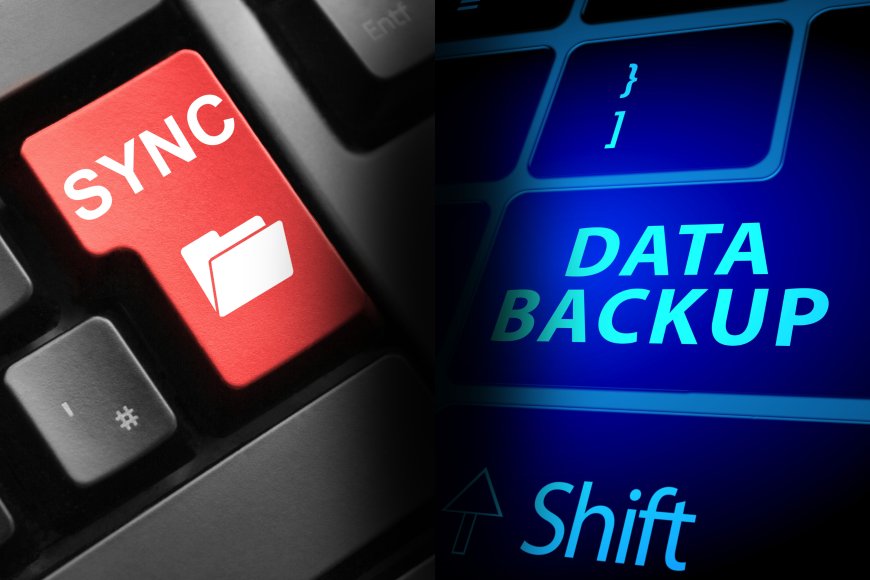Cloud Syncing Isn’t Data Backup: Learn Why Backing Up Separately Is Crucial for Data Safety
Cloud sync services like Google Drive offer convenience, but not true data loss prevention. This article explains why dedicated data backup is essential to recover lost or accidentally deleted files.

Our devices are full of important information like photos, documents, videos, projects, and more in this digital age. A lot of us use cloud services like Google Drive, OneDrive, or Dropbox to keep this data safe. But here's something that most people don't know, putting your files in the cloud doesn't mean they are backed up.
This article will explain the difference between data backup and synchronisation, and why data backup is important even if you use cloud sync services.
What is Synchronization?
"Sync," or synchronization, is the process of keeping your files the same on different devices or platforms. When you sync a file from your computer to Google Drive, you can open it on your phone or tablet simply because as you're signed into your Google account. Changes you make to a file on one device are automatically shown on all of your devices.
But here’s the catch: If you delete the file from your laptop, it will also be deleted from your Drive. In other words, sync keeps your data up to date in real time. Whatever happens to the original file also happens to the synced copy.
What is Data Backup?
Backing up data is different. Backup makes a copy of your data that stays safe even if the original file is lost, changed, or broken. This copy is kept somewhere else, like on an external drive or a secure server, and it doesn't change when you change the original file.
Backup is like taking a picture of the file and keeping it safe, while sync is like a mirror. Your backup is still there even if the original file is lost.
Key Difference between Data Backup and Synchronization
Synchronization and data backup differ mostly in purpose and operation. Synchronization updates files across devices. If you change or delete a file on one device, all synced devices do the same. This also means that accidentally deleting something erases it everywhere.
However, data backup protects files from loss or damage. It makes a backup of your files in case they're lost or altered. Backups are scheduled, unlike sync. After deleting or corrupting the original file, you can recover it from the backup. Backup is necessary for data protection and recovery, but sync is best for convenience and collaboration.
Why You Should Choose a Dedicated Data Backup Service
Although cloud sync services are helpful for accessing files between devices, because changes are made in real time, they don't provide complete protection against accidental deletions, corrupted files, or account problems. In contrast, a specialised data backup service keeps a safe, independent copy of your data that is protected even in the event that the original is lost or corrupted. Backup services make sure your important files are always safe.
Stay Synced, but always Back Up
In other words, synchronization enables you to access your files from any location, while backup enables you to retrieve them in the event of a problem. Proper data backup is essential for genuine data protection, as data loss frequently results in its permanent disappearance. When your data is important, syncing isn't enough, you need to back it up.







